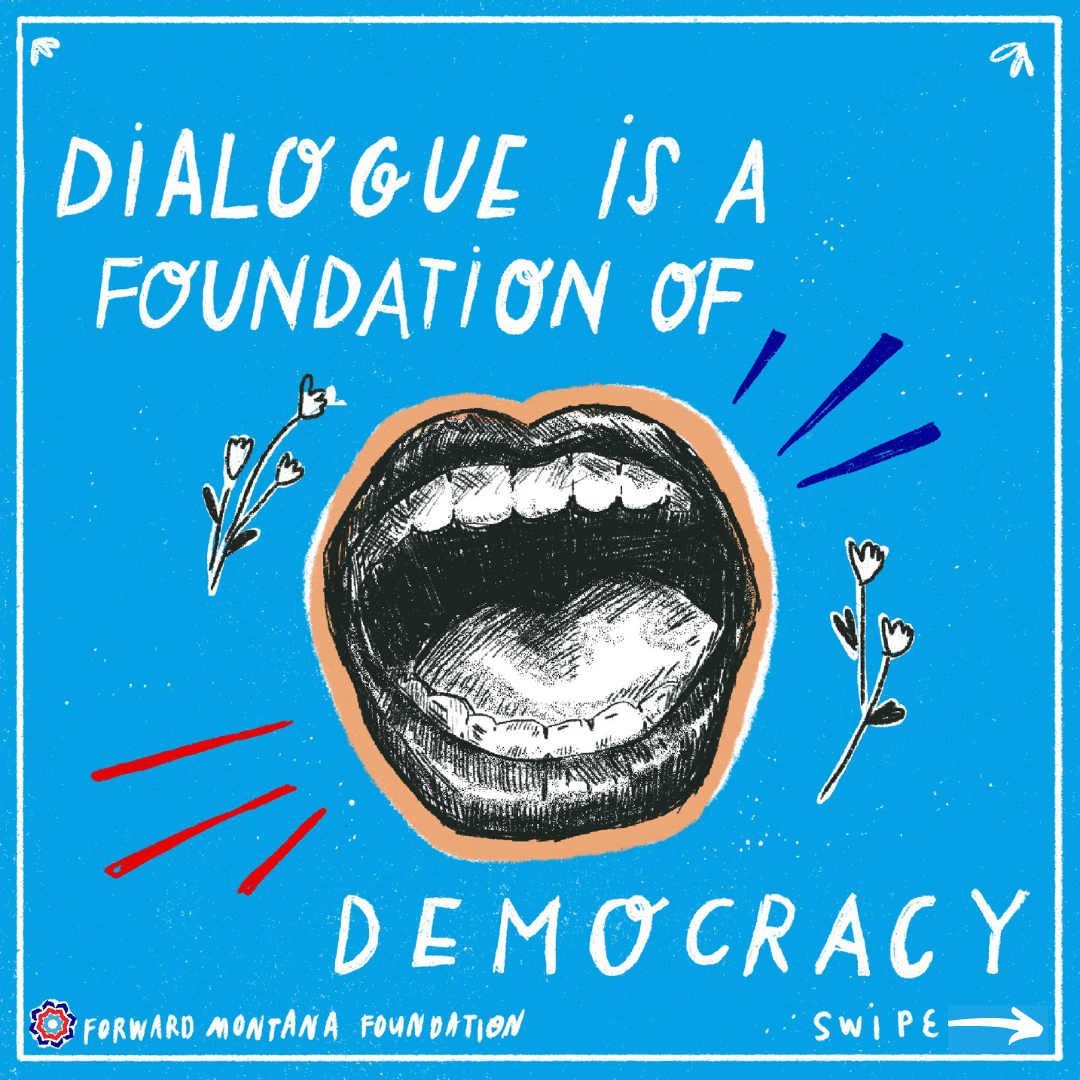
As we’re transitioning into winter, for some of us, that means spending time with friends and family for the holidays, entering an unusually long school break, or being at home for longer than usual. While the holiday season can be filled with joy and laughter, sometimes seeing your loved ones can be difficult, especially if there are political and ideological differences.
While many of these topics can be filled with strong emotions and opinions, if these conversations do end up happening, it’s possible to hold a productive, meaningful, and civil conversation.
Here are some tools to keep in mind that can help you navigate difficult conversations with more confidence:
Listen to understand, not to criticize.
Actively listen to what the other person is trying to communicate, rather than what your response is going to be. Try not to jump in when you hear a comment you disagree with.
Set expectations. The goal is to listen and gain understanding on how the other person feels and views the issue. If you’re trying to change minds, proceed with caution. Accept that you probably won’t be successful, and be careful not to patronize or infantilize the people you’re debating.
Abandon defensiveness and lead with curiosity.
Although what you believe might make perfect sense to you, others have their own reasons for their beliefs. Instead of being dismissive or unreceptive, ask thoughtful and critical questions about their ideas to help you better understand where they’re coming from. Ask the person to clarify arguments that aren’t making sense to you. You can respectfully challenge each other and still maintain a civil conversation.
Ask questions like:
- “I’m not sure if I understand that point. Can you explain it again?
- “I’ve never thought about it that way before. Can you tell me more?”
- “I can see you feel strongly about this. Why is this issue important to you?”
- “Can I ask where you heard that?”
- “What makes you feel that way?”
Be open to learning and changing your opinion if new, compelling information is presented, even if it supports alternative beliefs than your own.
Being respectful makes a huge difference.
Body language and tone are powerful tools of communication. Sticking to “I” statements helps to continue conversations about issues from a place of mutual respect and trust.
This can sound like:
- “This policy hurts me because it restricts my…”
- “I’m directly impacted by ____, and it makes me feel…”
- “From my perspective…”
If you raise your voice, demean, disrespect, make broad generalizations, or call the other person names, you’re not doing yourself or anyone else any good.
This goes for body language, too. Nonverbal cues can account for over 50% of what you’re communicating. Direct eye contact and nodding lets the person know that you’re listening, but rolling your eyes, heavily sighing, scoffing, or constantly checking your phone might exacerbate the situation.
Explore shared values.
Focus on areas of agreement rather than highlighting divisions. Find common ground based on the core of your and the other person’s emotions, rather than creating a contest of who’s right or wrong.
Try to step into the other person’s shoes, and invite them to step into yours. Share personal stories and allow yourself to be vulnerable. Explain why you care, what worries you, and your hope for the future. Be cognizant of how you share facts; use information to increase understanding, rather than as a weapon.
Lean into a support network.
If you’re expecting to have a difficult conversation, if possible, ask another person who will be in the same space to be a proactive bystander and support you during the conversation.
Call a friend or family member after a hard conversation to rant, find comfort, and/or get support.
Establish & honor boundaries.
Most importantly, set your boundaries. Don’t be afraid to express you are no longer comfortable with a conversation and end the conversation entirely if it becomes disrespectful or hurtful. Some battles are not worth fighting, especially at the sake of your emotional or mental health.
If you find yourself in a group setting and are feeling pressured, hurried, or anxious with an audience who might take sides, and feel that a meaningful conversation would better thrive in a private conversation, do that.
- “I don’t want for this to become a group argument. I really want to know more about how you feel about ___. Can we talk later?”
- “I really want to understand where you’re coming from. Can we talk in private later?”
- “I want to take some time by myself to learn more about this topic. Can we reconnect later?”
Remember to take a step back if you need to. Slow down, take a deep breath, and give yourself a moment to process your emotions before they negatively dictate your actions or words. If you need to take a break, let them know that the conversation is really important to you, but you need to cool down so that you can really listen and continue to have a meaningful dialogue.
No doubt, the holidays can be a stressful time, especially when we’re navigating an extremely divided country. Whether you decide to intentionally hold difficult conversations, avoid it entirely, or play it by ear, having an open dialogue, no matter the topic, can be an opportunity to connect with, understand, and learn from our friends and family.
Illustration in cover piece by Rachel Dunlap. [instagram: @rayart.co]
